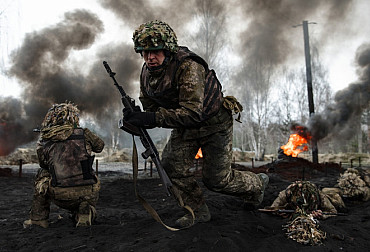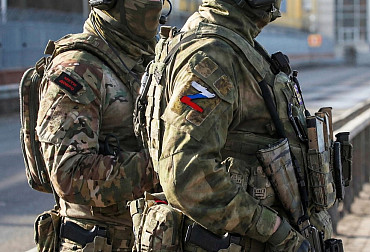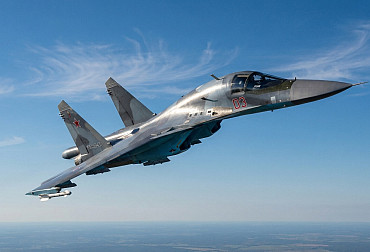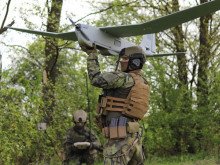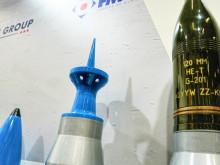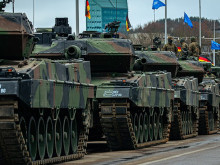Defence research, development and innovation. The new concept sets out priorities for 2023-2029
One of the strategic documents, which is based on the framework set by the Security Strategy of the Czech Republic, the Defence Strategy of the Czech Republic, the Long-term Defence Outlook 2035, the Concept of the Construction of the Czech Armed Forces 2030 and the Strategy of Armaments and Support for the Development of the Czech Defence Industry until 2030, is the Concept of Defence Applied Research, Development and Innovation for the period 2023 to 2029. It was discussed by the Government Council in April this year. The future direction of defence research will emphasise the development of capabilities in emerging and disruptive technologies, following the available financial resources and capabilities of the domestic defence and security industry."
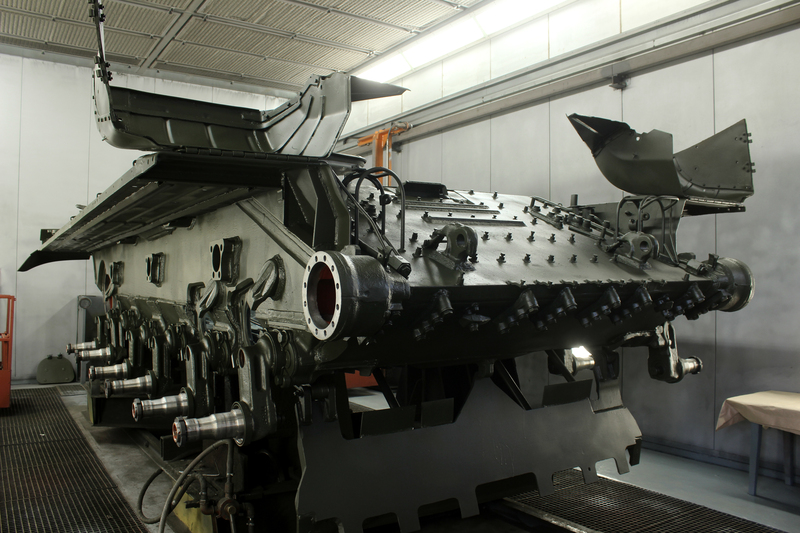
While the Security Strategy of the Czech Republic is the responsibility of the Ministry of Foreign Affairs, the other documents mentioned fall under the Ministry of Defence. The new Defence Strategy of the Czech Republic has been approved by the National Security Council and will be considered by the government in October. The Defence Strategy describes the basic principles of the construction and operation of the national defence system and recapitulates the main tasks of the armed forces and updates the political-military ambitions. In this respect, the deterioration of the security situation in Europe as a result of the Russian attack on Ukraine is a determining factor for the new strategy. It identifies Russia as the most serious threat.
Moreover, the Concept of Defence Applied Research, Development and Innovation and its themes are more broadly interlinked with the National Research and Innovation Strategy for Intelligent Specialisation of the Czech Republic 2021-2027, the National Strategy for Artificial Intelligence in the Czech Republic, the Thesis of the Economic Strategy of the Czech Republic 2020-2030 and the National Space Plan 2020-2025, where it intersects with the responsibilities of the Ministry of Industry and Trade and the Ministry of Transport, and refers to measure 22 of the National Policy on Research, Development and Innovation of the Czech Republic 2021+, which is the overarching strategic document at the national level for the development of all components of research, development and innovation in the Czech Republic.
The General Concept emphasises the strategic concept documents of NATO and relevant security documents of the European Union, especially its European Defence Agency (EDA). The Concept builds on the previous Concept of Defence Applied Research and Development until 2022, while responding to changes in the security environment and set priorities for the development of the Czech Armed Forces.
The material lists 21 priority areas, which are intelligence capabilities and command and control systems, electronic warfare, command and control systems, military geography, military hydro-meteorology, space and space technologies, cyber and robotics, joint fire support, and protection against weapons of mass destruction, engineer support, mine and IED detection and elimination, energy and non-lethal weapons, radar systems, military cartography, analytical support, training and simulation technologies, military art, intelligence capabilities and cyber protection, logistics systems, and materials engineering.
It also focuses on so-called EDTs, Emerging and Disruptive Technologies, an umbrella term for technologies that are expected to significantly transform defense and security requirements in the coming years. Their individual domains are defined by NATO strategic documents, and are in nine key areas: big data and advanced data analytics, artificial intelligence, autonomy, quantum technologies, space technologies, hypersonic weapon systems, biotechnology, new materials and manufacturing, and energy and propulsion.
The concept identifies technology as the foundation of the defence and deterrence capabilities of the North Atlantic Alliance, for which technological dominance is key. "The ability to understand how technologies in the world affect or can affect the capabilities of the Czech Armed Forces is one of the main conditions for adequately providing defence in the 21st century environment," adding that another condition from the MoD's perspective is setting up a system for managing and coordinating departmental research and development so that it can draw not only on the results of departmental R&D capabilities, but also on the civilian research environment.
An interesting part of the concept is a SWOT analysis of defence research, development and innovation in the Czech Republic. Among the strengths, it includes the long-standing traditions and strong industrial base of the defence and security industry and specialist institutes, the experience of state-owned enterprises and research organisations of the MoD, or the ability to share and transfer knowledge and strengthen cooperation between representatives of the Ministry, the Czech Army, the University of Defence and the defence and security industry.
On the other hand, the weaknesses include the insufficient level of application of research, development and innovation results to the development of the capabilities of the armed forces, the instability of budget resources, the low level of knowledge and technology transfer to industrial production, the absence of systematic mapping of threats and their development, as well as, for example, the lack of promotion and media coverage of defence applied research, development and innovation - which is directly related to the aforementioned insufficient level of application and transfer of knowledge to industrial production - so there are not many opportunities to promote specific applications.
The Concept sees opportunities in the direction of defence research, development and innovation in the area of the above-mentioned EDT, involvement in new NATO initiatives, readiness of the Czech defence industry to actively cooperate and participate in the implementation of programmes and projects, or increased interest of companies in defence applied research, development and innovation in the scientific areas of security and defence.
Conversely, the risks in the inadequate legal regulation of public procurement, which does not reflect the specific characteristics of defence acquisitions (the government's 2021 programme statement promises: "By 2023, we will submit an amendment to the Public Procurement Act to take into account the specifics of defence acquisitions"), the outflow of human resources (top R&D personnel) and related skills in key areas from departmental R&D sites due to the low competitiveness of the employer, the reduction of budget allocations for defence R&D, and the general reduction of state defence expenditure (this risk is fundamentally limited by the approval of Act 177/2023 Coll. , according to which the State will in future spend at least 2 % of GDP on defence), or in the increasing cost of R&D work.
According to the Concept, the State intends to continue to support the development of the infrastructure of research organisations, with an emphasis on the development of the capabilities of the University of Defence in the field of research, development and innovation and further intensification of cooperation with the University of Defence in addressing conceptual issues of research, development and innovation and other aspects of the development of the MoD, and to newly support emerging initiatives in the international environment to support the involvement of the domestic defence and security industry in research and development activities within NATO and the EU. In implementing the concept, its instruments will need to be adequately adapted to the evolving security situation and "increasingly dynamic developments in technology". The most important of these are the provision of institutional support to the research organisations of the Ministry and the provision of earmarked support under existing and forthcoming programmes.











